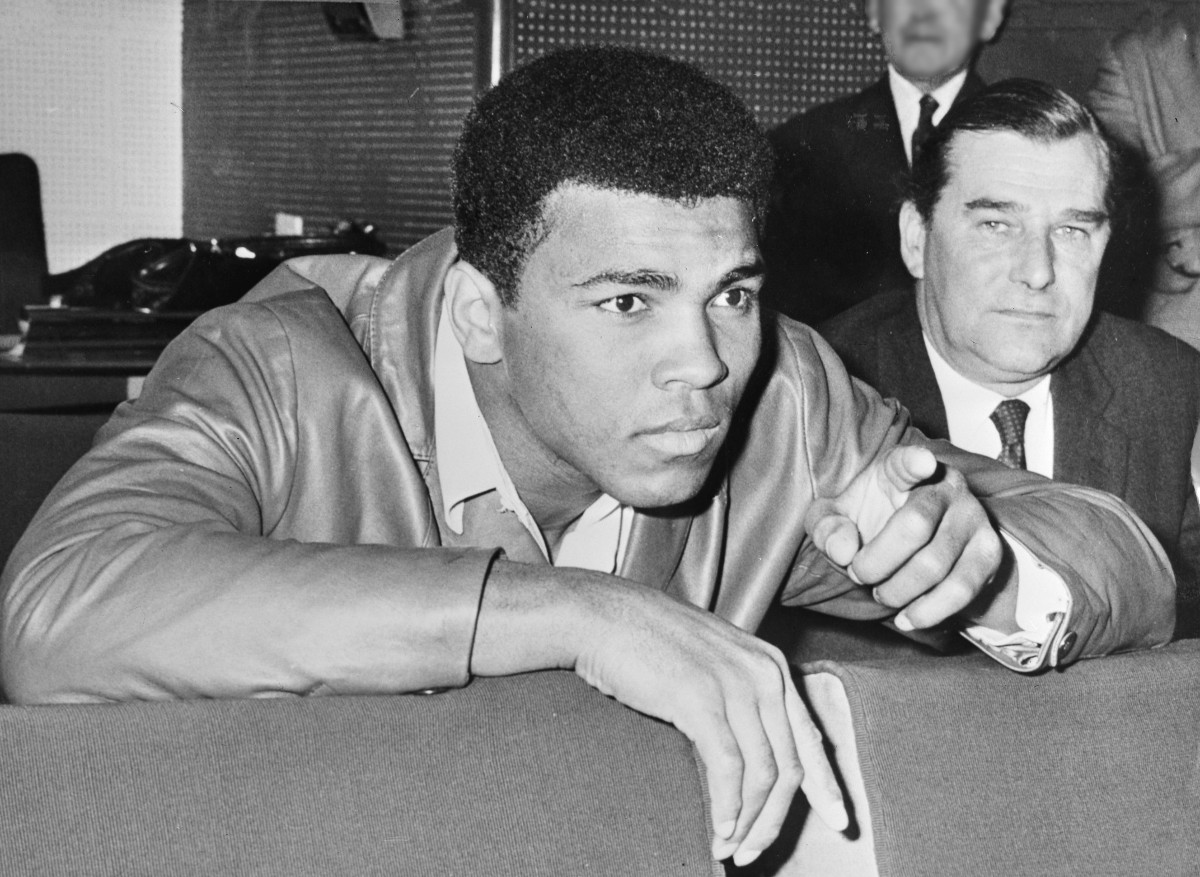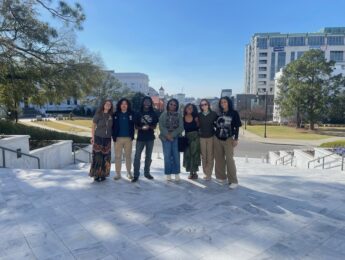
Muhammad Ali, regarded as one of the greatest sporting figures of the 20th century, holds a prominent and complicated place in American culture. In addition to being a three-time heavyweight champion, he also became a champion for Muslims in America. Students in the LMU Bellarmine College of Liberal Arts summer 2020 course “Islam in America” have been studying his contributions to America and American culture, as well as the relationship between Islam and America in the past through to present day.
Amir Hussain, professor of theology, finds the lessons to be learned from Ali’s life as relevant as ever. Before the internet and social media, Ali, born Cassius Clay, was one of the most influential people of the 20th century and he was an American Muslim. He converted to the Nation of Islam, changed his name to Muhammad Ali, and refused induction into the draft for the Vietnam War. Ali was convicted of a felony charge for violating the Universal Military Training and Service Act, but his conviction was overturned unanimously by the U.S. Supreme Court years later. “Now, in the age of Black Lives Matter, I think his legacy is even more important,” Hussain said. “To use his own words, he ‘shook up the world,’ and he did it as a Black Muslim.”
In line with the virtual nature of the course, students watched the two-part documentary film “What’s My Name: Muhammad Ali” from their homes and later discussed the film in class. Hussain also enhanced the class with a visit from Gary Smith, a venerated Sports Illustrated feature writer who wrote a number of pieces about Ali. “I’ve been trying to get Gary to come to LMU for 15 years to give a talk, but it hasn’t worked out with his schedule,” says Hussain. “With Zoom, he was able to engage with students in a small-group setting for close to an hour.”
From his porch in South Carolina, Smith joined LMU students located all over the world, including Kuwait, Saudi Arabia, Indonesia, and Bulgaria. Smith did what he does best, discussing encounters with Ali that revealed the great champion’s highs and lows, and most important, his human spirit. Ali is among the most famous converts to Islam in the world. He embodied Black pride for many African Americans and became an “ambassador” for Muslims around the world. Smith illustrated how much Ali meant to so many people with something Ali’s trainer, adviser, and guru, Drew “Bundini” Brown, said during the “Thrilla in Manila,” the third and final boxing match between Ali and Joe Frazier: “If Joe Frazier wins, Joe Frazier only wins. But, if you win, the world wins.”
Smith also talked about Ali’s later years, specifically his Parkinson’s disease journey. Ali evolved from a brash fighter to a quiet, humble warrior trying to understand and accept his condition. In fact, he took many lessons from the tenets of Islam in confronting and engaging impermanence, and he did not show shame or embarrassment about having Parkinson’s. “As the years went by,” Smith said, “and he confronted the reality that he had lost his magical powers to dance, to move, to make people laugh, to talk a million miles a minute; he drew deeply from his religion and spirituality to help him deal with the effects of his disease and come into full ownership of himself as his conditioned worsened.”
This course also has a writing flag and addressed the creative and technical aspects of writing. Smith, a four-time recipient of the National Magazine Award, provided insights on writing powerful and engaging content. “My governing philosophy is to follow where the flame is,” said Smith. “Feel your way into a story and reflect on what part of it lights you up the most. When you follow an angle you are fascinated by, that’s when the gold is going to happen.”
Students in the course have the opportunity to create gold of their own by implementing Smith’s tips and advice into their various writing assignments, including a research paper, book review, and longer theological reflections. Hussain added, “One of the things that I admire most about Gary’s writing is that he helps us to see the full humanity of our heroes.”
Ali had a way with words that made a lasting impact on people. “He was as quick with his words as he was with his fists,” said Smith. In addition to the famous Ali quotes, Smith and Hussain encouraged students to explore Ali’s clever, captivating, and sometimes funny, poetry.
I’ve wrestled with alligators.
I’ve tussled with a whale.
I done handcuffed lightning.
And throw’d thunder in jail.
—Muhammad Ali






